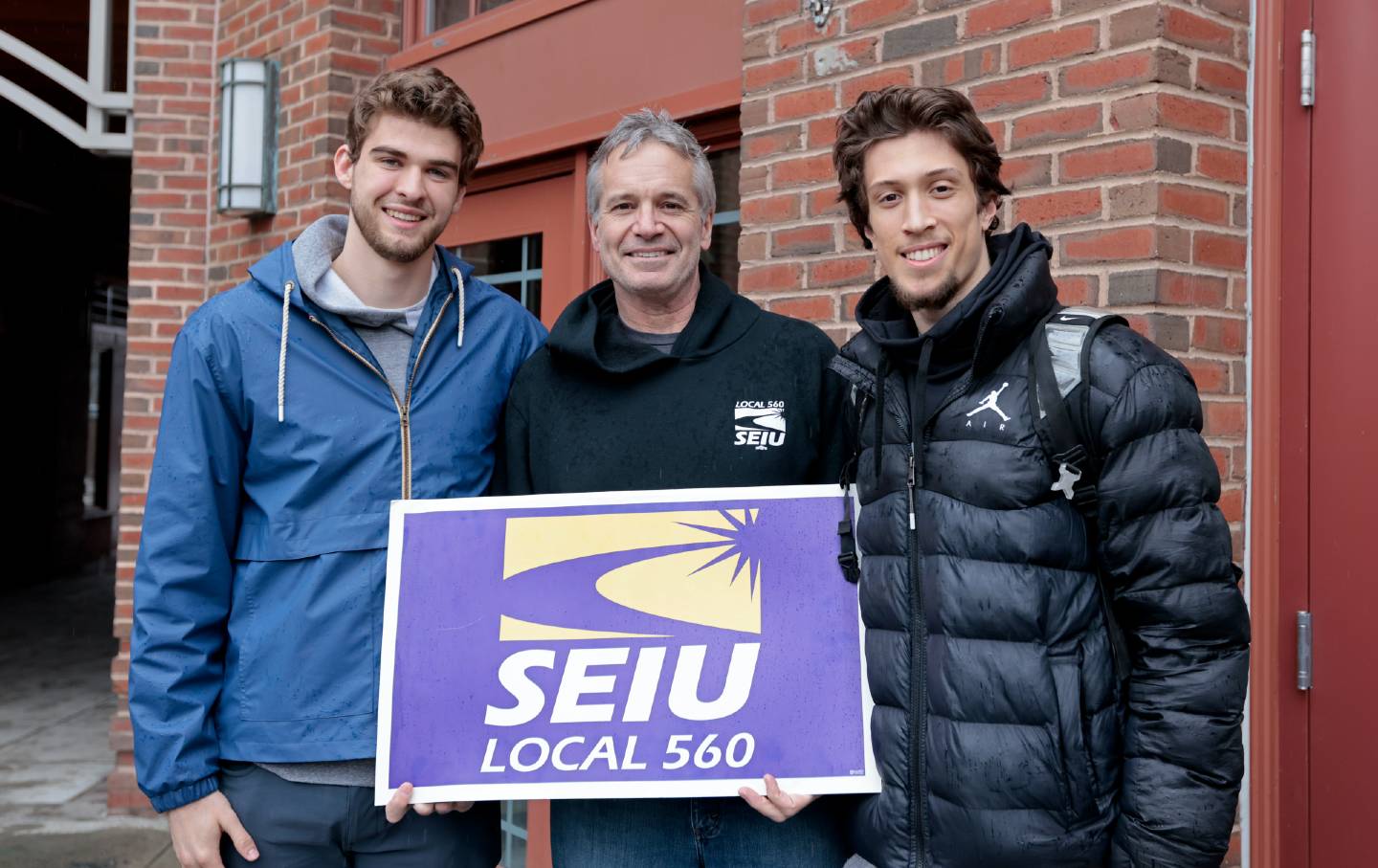The Future of College Sports Is Unionized [View all]
The Dartmouth basketball team just voted to join SEIU Local 560, a big step toward ending the exploitation of college athletes.
Dave Zirin

Posing after voting to form the first players’ union in the country are the main player organizers Cade Haskins, left, and Romeo Myrthil, right. Chris Peck, center, is president of SEIU Local 560, which is the campus workers’ union, that the players will join. (Pat Greenhouse / The Boston Globe via Getty Images)
Emmet Fraizer contributed reporting for this piece.
By voting 13 to 2 to join SEIU Local 560, the basketball team at Dartmouth has put the question of the unionization of college athletes at center court. In the process, the players are educating the NCAA—if it would deign to listen—that the future of university–athlete relations lies in collective bargaining. The current economy of college sports is, to put it mildly, dyspeptic. An unregulated system where players can profit from their name, image, and likeness has upended the revenue-producing sports of football and basketball. The transfer portal that grants the freedom to so-called “student athletes” to switch teams, has also created a cultural sea change. In short, a shifting of power away from autocratic coaches and athletic directors to the players themselves has taken place. Yet there still is that final frontier: unionization and collective bargaining, both of which could build a new and better framework for college sports.
While NIL money benefits a few athletes with regionally or nationally known names—like Iowa basketball star Caitlin Clark or Texas backup quarterback Arch Manning—and the transfer portal has been a vital reform, both skirt the question of whether these “student athletes” are in fact campus workers. As campus workers, they would, in theory anyway, be free to organize into a union and demand collective bargaining over not only compensation but other issues that affect “student athletes” like medical care, travel demands, and the academic freedom to choose classes without athletic department interference. And this is just a smattering of the issues that would surely be brought to the table. Of course, the NCAA and many head coaches have no desire to sit across the table from players. They decry unionization as an affront to everything good and holy about amateur sports, but the fortress of anti-unionism that is the NCAA has been breached by the Dartmouth players. The sooner they recognize that this breach cannot be closed, the better for all parties.
Patrick Hruby, deputy editor of The Washingtonian and a longtime critic of what he calls “sham amateurism,” made the point to me that the NCAA can keep “flushing money” by “paying lawyers and lobbyists who have taken repeated Ls in courtrooms and legislative offices” or they could stop resisting a generation that is not going to take the food scraps for which previous ones—sometimes literally—felt forced to settle. The NCAA can finally see the benefits of collective bargaining, or they can continue in their fierce belief that sham amateurism will have to be pried from their dead hands.
This is a battle for which the players are ready. Teammates Cade Haskins and Romeo Myrthil said to the Associated Press,
“We stuck together all season and won this election. It is self-evident that we, as students, can also be both campus workers and union members. Dartmouth seems to be stuck in the past. It’s time for the age of amateurism to end.”
FULL story:
https://www.thenation.com/article/society/dartmouth-unionization-basketball-college-sports/
